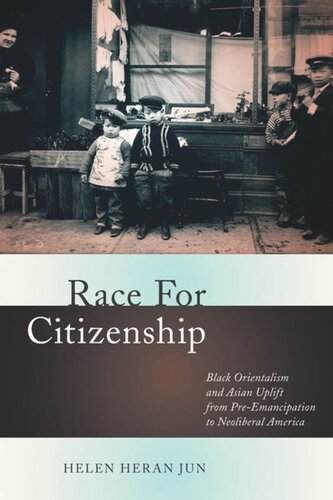

Most ebook files are in PDF format, so you can easily read them using various software such as Foxit Reader or directly on the Google Chrome browser.
Some ebook files are released by publishers in other formats such as .awz, .mobi, .epub, .fb2, etc. You may need to install specific software to read these formats on mobile/PC, such as Calibre.
Please read the tutorial at this link: https://ebookbell.com/faq
We offer FREE conversion to the popular formats you request; however, this may take some time. Therefore, right after payment, please email us, and we will try to provide the service as quickly as possible.
For some exceptional file formats or broken links (if any), please refrain from opening any disputes. Instead, email us first, and we will try to assist within a maximum of 6 hours.
EbookBell Team

4.3
88 reviewsHelen Heran Jun explores how the history of U.S. citizenshiphas positioned Asian Americans and African Americans in interlocking socio-political relationships since the mid nineteenth century. Rejecting the conventional emphasis on ‘inter-racial prejudice,’ Jun demonstrates how a politics of inclusion has constituted a racial Other within Asian American and African American discourses of national identity.
Race for Citizenship examines three salient moments when African American and Asian American citizenship become acutely visible as related crises: the ‘Negro Problem’ and the ‘Yellow Question’ in the mid- to late 19th century; World War II-era questions around race, loyalty, and national identity in the context of internment and Jim Crow segregation; and post-Civil Rights discourses of disenfranchisement and national belonging under globalization. Taking up a range of cultural texts—the 19th century black press, the writings of black feminist Anna Julia Cooper, Asian American novels, African American and Asian American commercial film and documentary—Jun does not seek to document signs of cross-racial identification, but instead demonstrates how the logic of citizenship compels racialized subjects to produce developmental narratives of inclusion in the effort to achieve political, economic, and social incorporation. Race for Citizenship provides a new model of comparative race studies by situating contemporary questions of differential racial formations within a long genealogy of anti-racist discourse constrained by liberal notions of inclusion.